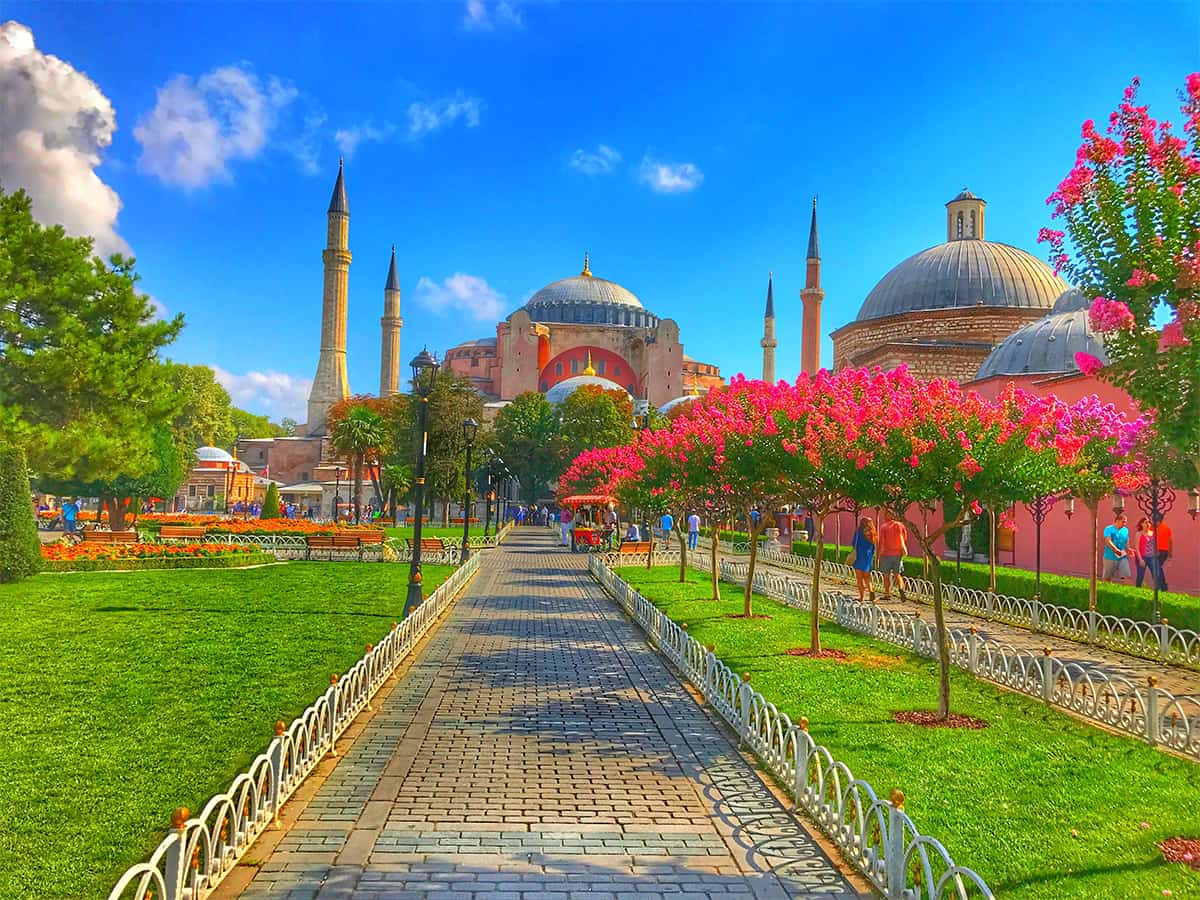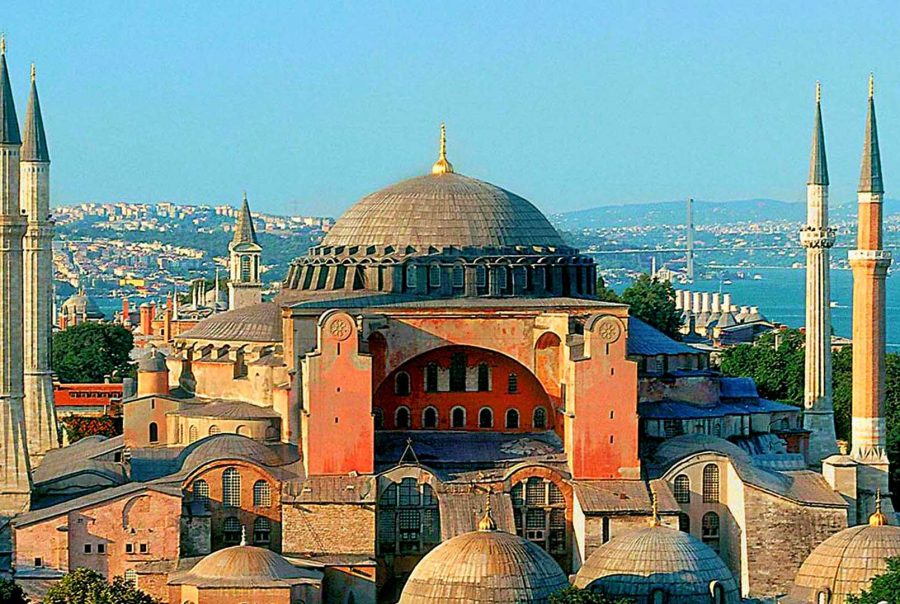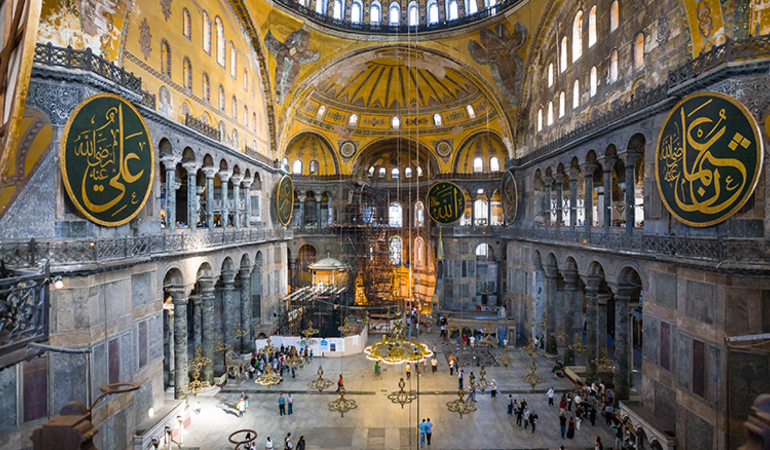Sruthi Vibhavari
Istanbul: Hagia Sophia- a monument that symbolized contesting empires, fates, and religions over centuries, stood in front of a court on Friday (July 10) which reversed its fate yet again. Turkey’s Council of State, the country’s highest administrative court revoked the museum status provided by a decree in 1934, reconverting the UNESCO World Cultural Heritage Site into a mosque.
The thought behind the 1934 presidential decree made by the founder of the Turkish Republic Mustafa Kemal Ataturk was to make the centuries-old monument secular.
Constructed in 537 AD by the Christian Byzantine Empire, Hagia Sophia was a cathedral that crowned the fabled city of Constantinople. Built as a Greek Orthodox Christian Church, it was unsurpassed for its grandeur and immense dome. When the Sultan Mehmed II of the Ottoman Empire conquered Constantinople in 1453, he converted the cathedral into a mosque. It thus served as the most exalted seat for both the Christian and Islamic empires.
After the Turkish Republic was formed, it formed a centrepiece of the country’s tourism and a hallmark of its secular identity. Over centuries, it also endured ransacking, fires, and earthquakes.
Now, President Recep Tayyip Erdogan uses the monument for his political consolidation. He had not talked of the cathedral-turned-mosque until recently. He made his stance stronger after his party, AKP lost Instanbul local elections, and now as COVID-19 continues to ravage economy. The topic to reconvert it into a mosque is brought up in times of political and economic crises to unify his conservative, nationalist base.
Earlier in May, on the occasion of the 567th anniversary of the Ottoman conquest of the former Byzantine capital, passages of Qur’an were recited inside the Hagia Sofia. President Erdogan also appeared on a screen to deliver a virtual speech.
On the other hand, Greece opposes the reconversion. The country’s connections to the former-cathedral dates back to the Byzantine Empire. However, President Erdogan and the APK came down heavily on Greece’s intervention in the internal policy decision of Turkey. “Making such accusations against our country about Hagia Sophia is tantamount to a direct attack on our sovereignty,” Erdogan quotes. The Russian Orthodox Church too released a statement regretting the decision of the top court.
Meanwhile, UNESCO would review the heritage status attested to Hagia Sofia with a change in its condition. “A state must make sure that no modification undermines the outstanding universal value of a site listed on its territory. Any modification must be notified beforehand by the state to UNESCO and be reviewed if need be by the World Heritage Committee,” UNESCO said




